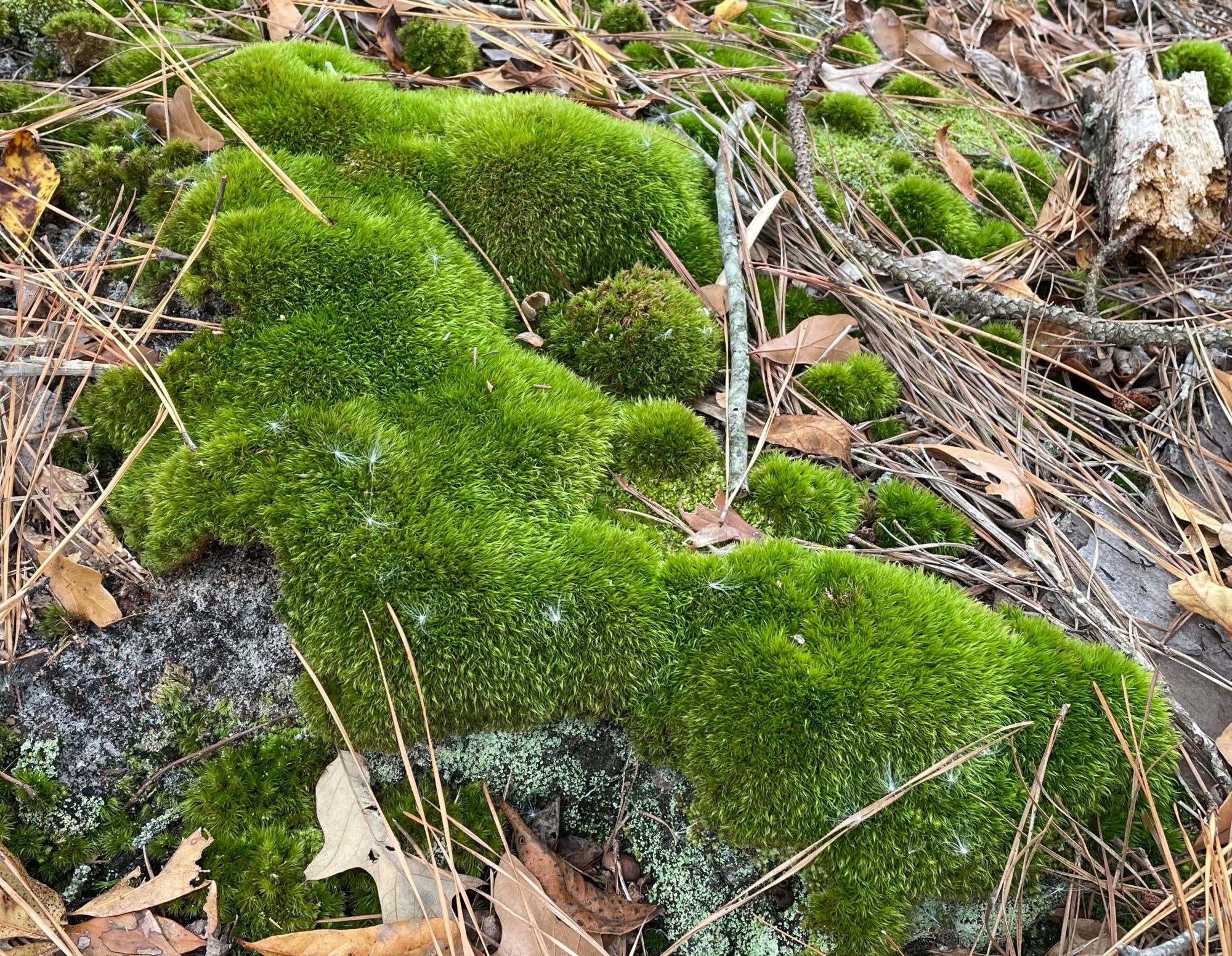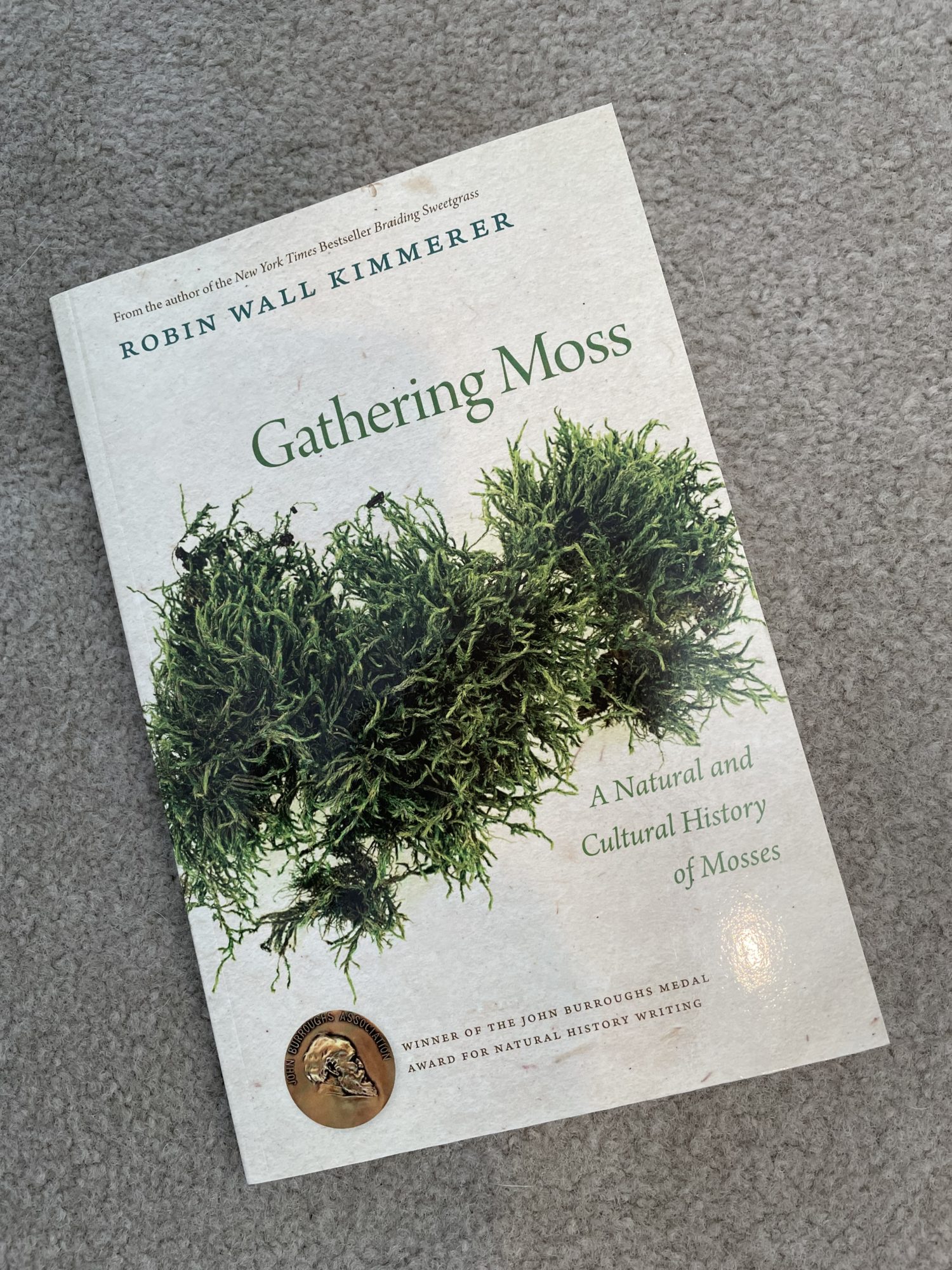
This week instead of rolling on to another topic, I am gathering a little more moss information.
Last week’s Nature Notes got some nice responses about moss, among them a note from Kathleen Rahman , who wrote to say that she once had a rabbit-shaped metal frame that she covered in moss. She simply scraped up some unwanted moss that was growing in the wrong spot on her brick patio and attached it to the rabbit. As moss can grow on most any surface , it took hold.
“An attractive transformation,” Kathleen said. “However, soon a bird, perhaps a chickadee, stripped much of the moss for its nest!”
Seems little birds have an affinity for moss-lined nests. Duane Noblick wrote to say that Carolina Chickadees raid the moss growing in his yard for their nests too.
“A plant I love having around,” Duane wrote.
Carol Chewning is another moss lover. “I am so fond of my moss,“ she wrote. “It arrived on its own from who knows where and fills in some of the bare spots where nothing else will grow.“
Jim Deppe, LRNow’s advocacy coordinator, told me that he and his wife have been reading “Gathering Moss, A Natural and Cultural History of Moss” by Robin Wall Kimmerer. This collection of personal essays won the Burroughs Medal Award for Natural History Writing.

I immediately ordered a copy and when it came, I went right to the index and found “Animal interactions with moss.” There, Kimmerer writes, “Soft and pliable, mosses are woven into birds’ nests of many species from the velvety cup of a winter wren to the hanging basket of a vireo.”
Moss makes a soft cushion for the eggs on the bottom of the nest and insulates the nest from the cold, Kimmerer wrote. Mammals, from chipmunks to bears, also use moss to line their burrows and many insects spend their larval stages in moss.
As I thumbed through the book, the more I saw the more I realized how much there was about moss to love.
I have a friend who intentionally planted moss in a shady part of her yard where it provides a beautiful green, soft foot bed, more beautiful than any grass could be.
For those of you who love moss too, you might be interested in planting moss in a shady area of your yard, I got in touch with Vickie Shufer. She grows moss Wild Woods Farm, her native nursery in North Carolina with headquarters here in Blackwater.
Vickie has led LRNow plant walks, is an authority on wild foods and compiles the Close Encounters column in the Beacon, among other things.
Among many native plants, she grows 20 different varieties of native mosses in the woods at Wild Woods Farm. Who knew there could be so many?
Mosses thrive in moist, shady conditions, Vickie said. Her moss comes in 12- by -24 inch flats for $20 a flat. Find out more at wildwoodsfarm.us/. Email Vickie at wildfood@cox.net.